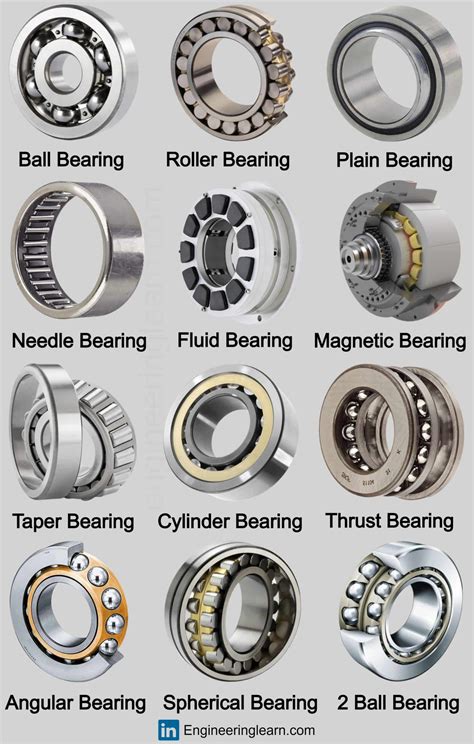The Ultimate Guide to Bearings: Your Compass to Smooth and Efficient Operations
In the vast landscape of industrial machinery, bearings serve as the unsung heroes, ensuring seamless motion and reliable performance. They are the gatekeepers of efficient operations, enabling industries to thrive and keep the wheels of progress turning.
The Importance of Bearings
Bearings are essential components in countless applications, from heavy-duty construction equipment to delicate medical devices. They reduce friction, support loads, and facilitate precise movement. According to the American Bearing Manufacturers Association (ABMA), the global bearing market is projected to reach $156 billion by 2026. This staggering figure underscores the indispensable role bearings play in modern industry.
Types of Bearings
The world of bearings is vast and diverse, with each type tailored to specific applications. From ball bearings to needle bearings and roller bearings, the choice depends on factors such as load capacity, speed, and environmental conditions.
Common Mistakes to Avoid
While bearings may seem like simple components, their proper selection, installation, and maintenance are crucial for longevity and optimal performance. Here are some common mistakes to avoid:

-
Incorrect Selection: Choosing the wrong bearing for the application can lead to premature failure and costly downtime.
-
Improper Installation: Poor installation techniques can damage bearings and compromise their integrity.
-
Insufficient Lubrication: Bearings rely on lubrication to minimize friction and extend their lifespan. Inadequate lubrication can cause premature wear and tear.
-
Overloading: Applying excessive loads on bearings can lead to catastrophic failure.
-
Contamination: Contaminants such as dirt and moisture can damage bearings and reduce their performance.
Why Bearings Matter
The benefits of using high-quality bearings extend far beyond ensuring smooth operation. They:
-
Increase Efficiency: Reduced friction improves energy efficiency and lowers operating costs.
-
Enhance Reliability: Durable bearings minimize downtime and increase productivity.
-
Reduce Maintenance Costs: Well-maintained bearings extend their lifespan and reduce the need for costly repairs or replacements.
-
Improve Safety: Failure-free bearings contribute to a safer working environment.
-
Promote Sustainability: Efficient bearings reduce energy consumption, contributing to environmental conservation.
Potential Drawbacks
While bearings provide numerous benefits, some potential drawbacks should be considered:
-
High Initial Cost: High-quality bearings can be expensive, especially for heavy-duty applications.
-
Limited Availability: Some specialty bearings may have limited availability, which can lead to delays in procurement.
-
Technical Expertise Required: Proper selection, installation, and maintenance of bearings require technical expertise.
-
Environmental Concerns: Improper disposal of bearings can pose environmental hazards.
Interesting Stories
The Case of the Silent Screaming
A manufacturing plant was experiencing inexplicable vibrations in a critical piece of equipment. After exhaustive troubleshooting, it was discovered that a single bearing was failing, creating a high-pitched noise inaudible to the human ear. The bearing was promptly replaced, and the vibrations ceased, highlighting the importance of attentive monitoring.

The Roller Coaster Ride
A roller coaster at an amusement park suddenly stopped mid-ride, leaving passengers dangling in the air. Inspection revealed that a roller bearing had seized due to inadequate lubrication. The park installed a higher-capacity bearing with a more robust lubrication system, ensuring future rides ran smoothly and safely.

The Medical Marvel
In a hospital operating room, a surgical robot malfunctioned during a delicate procedure. Surgeons discovered that a ball bearing in the robot's arm had failed, putting the patient at risk. The bearing was replaced with a higher-grade component, and the surgery was completed successfully, demonstrating the critical role bearings play in medical equipment.
Conclusion
Bearings are indispensable components that power modern industry and ensure the smooth operation of countless applications. By understanding the different types, common mistakes, and the benefits of bearings, businesses can optimize equipment performance, reduce downtime, and enhance safety. As the bearing market continues to grow, it is imperative for organizations to invest in high-quality bearings and leverage their advantages to drive efficiency, reliability, and success.
